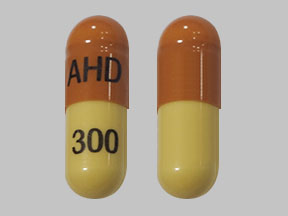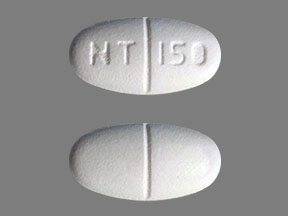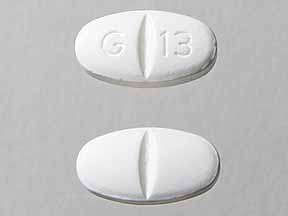Pill with imprint AHD 300 is Brown & Yellow, Capsule/Oblong and has been identified as Gabapentin 300 mg. It is supplied by ACI Healthcare USA,…
Pill with imprint NT 150 is White, Oval and has been identified as Gabapentin 600 mg. It is supplied by Solco Healthcare U.S., LLC. Gabapentin…
Pill with imprint SG 179 is White, Capsule/Oblong and has been identified as Gabapentin 100 mg. It is supplied by ScieGen Pharmaceuticals, Inc. Gabapentin is…
Pill with imprint SG 1 78 is White, Capsule/Oblong and has been identified as Gabapentin 800 mg. It is supplied by ScieGen Pharmaceuticals, Inc. Gabapentin…
Pill with imprint G 13 is White, Oval and has been identified as Gabapentin 800 mg. It is supplied by Glenmark Generics Inc. Gabapentin is…
Pill with imprint SG 1 77 is White, Capsule/Oblong and has been identified as Gabapentin 600 mg. It is supplied by ScieGen Pharmaceuticals, Inc. Gabapentin…
Gabapentin is used to help control partial seizures (convulsions) in the treatment of epilepsy. This medicine cannot cure epilepsy and will only work to control…
Gabapentin is as an anti-epileptic drug and as an analgesic, particularly for pain of the neuropathic or neurogenic type. When used for controlling epilepsy, it…
Gabapentin was developed to treat epilepsy, but it is now used to treat various forms of chronic pain. It works by reducing the number of signals…
Gabapentin (brand name: Neurontin) is a generic prescription drug that is FDA-approved as an add-on treatment with other medications for partial seizures in those with…





